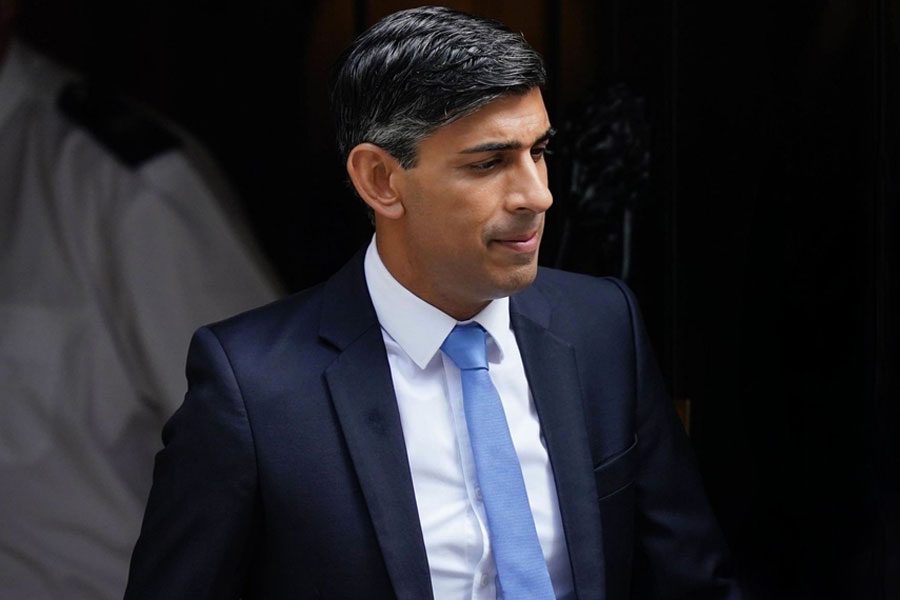Does British Prime Minister Rishi Sunak risk scoring an own goal by calling an election during the 2024 European Championship soccer tournament in July?
Sunak, himself a soccer fan, might be hoping for a boost to his struggling campaign if England do well, although whether there really is a link between sport and elections is disputed by experts.
Given the national team's habit of morale-busting defeats in major tournaments, the chance of another hit to the English psyche appears just as likely a backdrop to the election.
On a positive note, however, England, runners-up three years ago, are among the favourites under manager Gareth Southgate with a team full of in-form attacking players including Harry Kane, Jude Bellingham, Phil Foden and Bukayo Saka.
Sunak unexpectedly called a national election for July 4 when the European Championship in Germany will be entering its most exciting phase.
Voters will head to the polls four or five days after England's first knockout match, assuming the team avoid the embarrassment of elimination in the group stage.
There is also a chance England will have been pitted against their hosts and old rivals Germany in that last-16 game, a prospect that will fill many fans with dread.
Scotland are competing in the tournament too, potentially offering relief to the ruling Scottish National Party which, like Sunak's Conservatives, is floundering in opinion polls.
Political pundits have offered non-sporting explanations for Sunak's decision to call an early election, including a fall in Britain's once double-digit inflation to close to 2% and signs that his flagship plan to send asylum-seekers to Rwanda might not get off the ground.
The timing has raised eyebrows, however, for the unusual overlap of an election campaign with the summer sporting calendar.
That has raised memories of one of the most painful of England's defeats.
In June 1970, a 3-2 loss to West Germany in a World Cup quarter-final was followed four days later by a shock election defeat for incumbent Prime Minister Harold Wilson, triggering debate about the impact of the match.
LINK OR NO LINK?
Much has been written since about a possible link between sport and elections.
A 2010 paper by academics at Stanford and Loyola Marymount University in the United States said wins for local college American football teams earned political incumbents an extra 1.61 percentage points of support in subsequent Senate, gubernatorial and presidential elections.
Others have found no clear connection.
Stefan Mueller and Liam Kneafsey, at University College Dublin and Trinity College Dublin, mapped Irish election outcomes over decades with Gaelic football and hurling match results and found no correlation with support for incumbents or ruling party politicians.
Kneafsey said there were signs that some kind of influence on voters did occur.
"Whether they actually switch their votes, that's probably a higher bar to clear and certainly the results there are inconclusive," he said.
While that debate continues, it is clear that politics do weigh on the minds of soccer fans.
At a Euro 2016 match, three days after Britain's shock Brexit referendum decision, many England fans joined in a crude chant directed at the European Union which ended with the words: "We all voted out". England were beaten 2-1 by underdogs Iceland and were knocked out of the competition.
Another risk for Sunak is that sports fans resent his scheduling of the election at a time when not only Euro 2024 is taking place - from June 14-July 14 - but also the Wimbledon tennis championships which run from July 1-14.
Campaigning will also overlap with cricket's T20 World Cup involving England and Scotland from June 2-29.
Some academics will be happy, however, as they will be able to do more research into the links between sport and voting patterns.
"We could actually do with politicians having more elections during this time to definitively test this," Kneafsey said.










